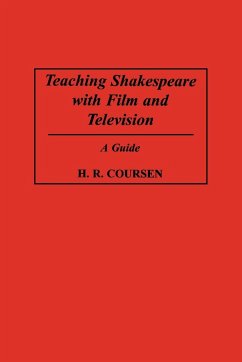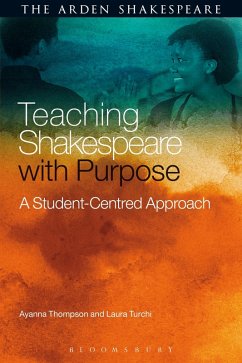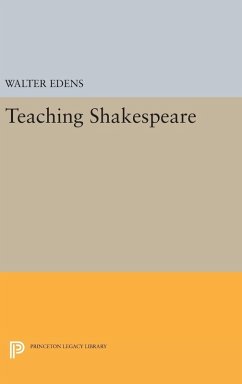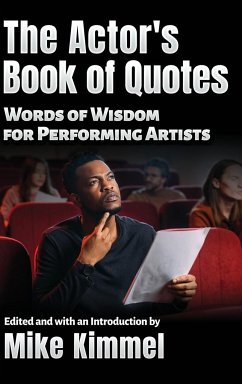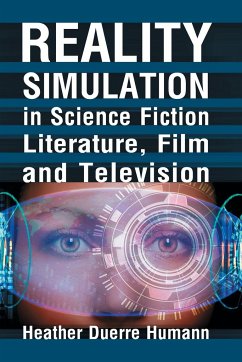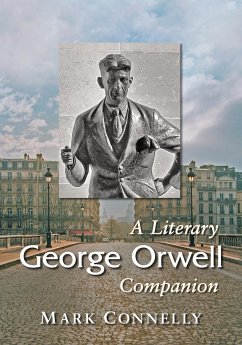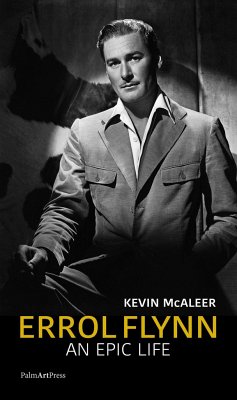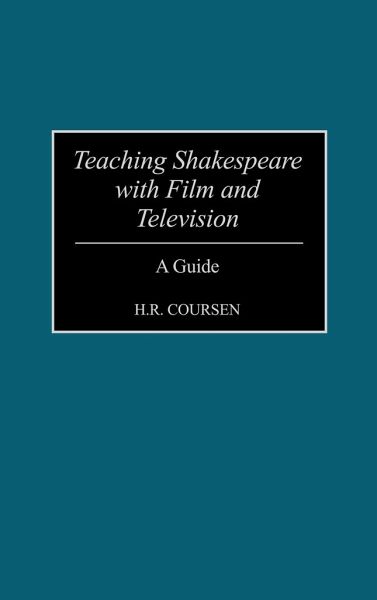
Teaching Shakespeare with Film and Television
A Guide
Versandkostenfrei!
Versandfertig in 1-2 Wochen
66,99 €
inkl. MwSt.

PAYBACK Punkte
33 °P sammeln!
Shakespeare is one of the world's most widely taught and most demanding authors. Fortunately, many of his plays have been adapted for film and television, and these productions are a valuable aid for helping students understand and respond to his works. This reference shows teachers and students how to master the techniques of discussing productions of his plays on film and television. It distinguishes the advantages and limitations of film and television as media for representing Shakespeare's dramas. The book then examines strategies for incorporating film and television productions in the c...
Shakespeare is one of the world's most widely taught and most demanding authors. Fortunately, many of his plays have been adapted for film and television, and these productions are a valuable aid for helping students understand and respond to his works. This reference shows teachers and students how to master the techniques of discussing productions of his plays on film and television. It distinguishes the advantages and limitations of film and television as media for representing Shakespeare's dramas. The book then examines strategies for incorporating film and television productions in the classroom and provides many specific examples of how to write about these adaptations of the plays. The volume describes numerous educational resources, both in print and on cassette. This reference will prove invaluable to teachers and students of Shakespeare at all levels, particularly at a time when Shakespeare films are being produced at an unprecedented pace. Although Shakespeare is one of the world's most widely taught authors, he is also one of the world's most demanding. Because of the popularity and sophistication of his works, numerous film and television adaptations of his plays have been made-some decades ago and others very recently. Shakespeare films are coming out at an unprecedented rate, as audiences continue to respond to the richness of his works. These productions are a valuable means of introducing students to Shakespeare's plays, for the film and television versions reflect different interpretations of his works. Although some productions are generally considered better than others, and all have various faults and virtues, each of them teaches us something about the play and the medium. This reference book is a convenient guide for helping teachers and students master the techniques of discussing productions of the plays on film and television. It makes important distinctions between the two media, particularly about the conceptual and physical space available in each and the choices that space, or lack of it, impose on production. Central to the book is the concept of script, the words from which productions are generated. Because even weak productions are nonetheless interpretations of Shakespeare's scripts, they can be used effectively to explore the complex issues in his plays. The volume includes many suggestions about how to help students write well by comparing in very specific terms small segments from different productions. It lists the resources available in this rapidly growing field, both on cassette and in print, and gives many examples of critical commentary, looking at genre, editing, allusion, setting, and the script in historical context. Productions discussed include the Edzard As You Like It, the Branagh A Midwinter's Tale, the Parker Othello, the Loncraine Richard III, and seventy years of Hamlet. Students and teachers of Shakespeare at all levels will find this book to be an invaluable guide to his plays.





